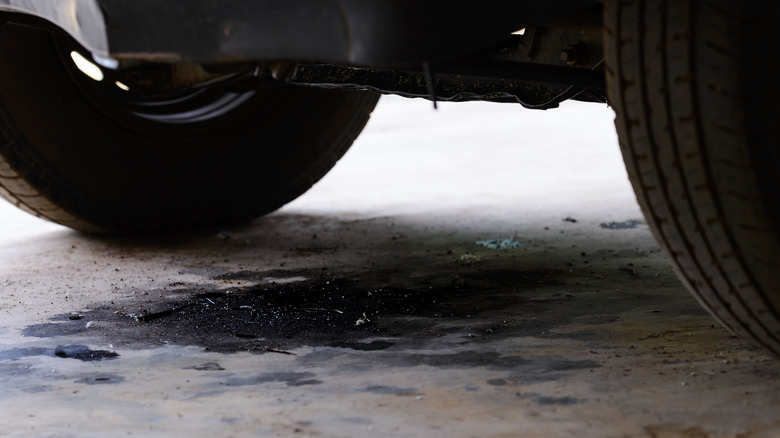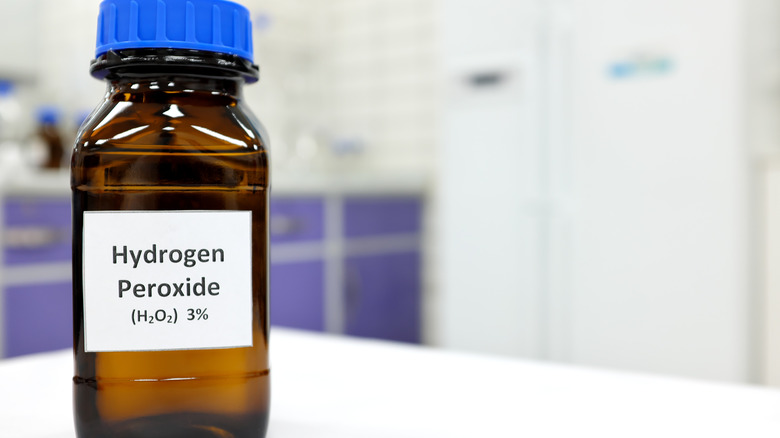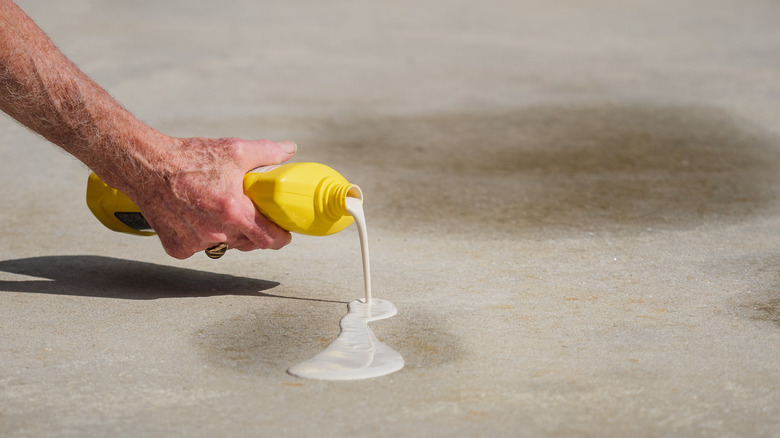Is Hydrogen Peroxide Really The Secret To Removing Oil Stains From Concrete?
Driveways can be difficult to keep clean for a multitude of reasons. Not only are they vast and exposed to outside elements, but you also have to deal with whatever dirt and grime are brought in on your car's tires. Every now and again your car can also develop an oil leak, which can stain the concrete. Of course, oil can also be brought in on tires, too. Yet before you give up and think that the marks are forever inundated, try a little hydrogen peroxide to remove oil stains and clean your concrete driveway.
Besides being used for minor cuts and scrapes, one surprising way to use hydrogen peroxide is as a cleaner as well as a cleanser. When you pour hydrogen peroxide on an oil stain, its oxygen molecules break down the oil, making it less greasy. At the same time, tiny bubbles form under the oil, lifting it away from the driveway's surface.
How to use hydrogen peroxide on your driveway
If the oil is fresh, act fast. First, grab any absorbent material like cat litter, sawdust, or even paper towels. Gently soak up as much oil as possible. This makes the next steps easier. Start with the gentlest cleaning method and work your way up to stronger solutions if necessary. A simple solution of dish soap and water can work to help clean up oil stains in your driveway. After all, dishwashing liquid is created to cut grease. If you want to start with the most mild cleanser, this is a good option. Add two teaspoons of dish soap to two gallons of warm water and mop the concrete. If that doesn't work, that's when you can turn to hydrogen peroxide to finish the job.
Mix hydrogen peroxide with baking soda until it forms a thick paste and isn't too wet and drippy (the thickness of a spoon of peanut butter is about the right consistency). You'll want to make enough to cover the stain completely. Add the paste-like mixture to the stain and allow it to stay there overnight. The next day you can use a scraper to remove any remaining oil. Make sure it is plastic so it doesn't scrape the concrete.
Take certain precautions when using hydrogen peroxide on concrete
While hydrogen peroxide can work well on many oil stains, it is not a cure-all. It's most effective on fresh stains and may not be suitable for older, heavily embedded ones. It's also worth noting that hydrogen peroxide contains bleaching agents so it has the potential to change the color of the concrete. While the effects are typically mild, it can slightly lighten the color of your driveway. If this concerns you, test it in a hidden area first. Additionally, it also may not be suitable for all driveway materials. Be cautious using hydrogen peroxide on colored or sealed concrete driveways as it could cause damage. It's best to consult the manufacturer's recommendations for cleaning your specific driveway material.
Always remember to wear gloves when dealing with any cleaning products. Also, never mix hydrogen peroxide with vinegar or other cleaning chemicals as that can lead to some potentially dangerous reactions which can irritate the skin, eyes, and respiratory tract. If despite your attempts, the stain remains stubborn, consider a stronger store-bought cleaner or contact a professional cleaning service.


